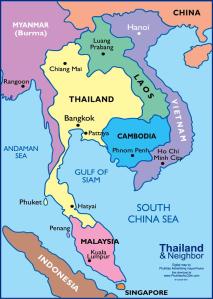Published in Concrete on the 17/01/2012
Motivational implies energy, it implies drive and it implies intuition. This list is complied of five films that aren’t ‘upbeat’, but give ‘incentive’ to its audience.
5) Pay it Forward (dir; Mimi Leder, 2000)
After The Sixth Sense, Haley Joel Osment would only manage a couple of other Hollywood films before dissolving into complete obscurity. He appeared in this flawed but positive movie about a high school student who invents a movement that encourages one person to change the lives of three people at a time. The idea begins to sweep America and a mission is on to find the person who introduced it. It’s a corny yet charming piece. In short the film’s about changing the world, what’s more motivational than that?
4) All About My Mother (dir; Pedro Almodóvar, 1999)
Pedro Almodóvar’s 13th film is unashamedly a film about women. In the director’s unique flair he celebrates and dissects all the components that make up the female form. The film follows Manuela whose son dies in a car accident. She then travels to Barcelona to find the father of her son and is caught up in the lives of the women that he loved and ruined. The film’s motivational moments come when the women in the film, all damaged yet strong, come together to help one another. Almodóvar’s film comes with a variety of subtexts but the power of women coming together in the face of adversity is a strong, positive, thematic message.
3) Rocky (dir; John G. Avildsen, 1976)
A fine motivational film doesn’t come much better than a sports flick and Rocky is the mother of all sports flicks. All of the Rocky films are the epitome of motivational Americana: work hard and reap the benefits. Refreshingly the first film is actually the least patriotic compared to the rest of the series giving it the most universal appeal as small time boxer, Rocky Balboa takes on the champion, Apollo Creed. The film includes an infamous and heart pumping training montage as well as brutal and pugilistic boxing match that feels raw even in 2012.
2) Milk (dir; Gus Van Sant, 2008)
Milk is the true story of Harvey Milk, the first openly gay man to be elected into major office in California. Around the start of the film, just before his 40th birthday, Harvey is a closet homosexual living in a New York in a sterile job. In just under eight years from he transformed sexual politics in America all senses and became an icon of his generation. ‘Without hope, life is not worth living’ says Harvey, a truly motivational statement.
1) Touching the Void (dir; Kevin Macdonald, 2000)
It’d be a slight travesty if the top of the list wasn’t a documentary. After all, what’s more motivational than real life? The film follows two climbers that attempt to mount one of the toughest mountains in the Peruvian Andes. It’s told by the three men who were on the disastrous expedition in a series of talking heads which is juxtaposed with dramatised footage of what happened during the climb. It’s not just a film but an experience. After 90 minutes of quite literally looking down the abyss into certain death, one can only feel motivated to appreciate life in all its forms and glories.






